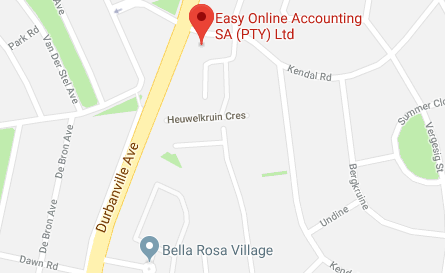
Starting a new business
The question I certainly get the most from clients, especially new ones, is what type of business entity I should use for my new business. Should I continue as a sole-proprietor, register a private company or register a trust? The answer is not always simple, as there are many factors to take into consideration like tax, legal and operational implications. A few questions I usually ask clients include the following:
- Realistically, where do you see the business in the medium-term future (1-5 years) in terms of turnover, profit, employee count and capital required for strategic growth?
- What do your current client/customer base look like and will new ones fit the current profile, or vary?
- Are you married in community of property?
So far just a lot of question marks, so let’s get down to some of the answers.
Choosing a sole-proprietor (Trading in your own name):
If you are starting out a new venture with lots of uncertainty, then it is always recommended to test the waters first and remain trading as a sole-proprietor. The cost of registering a new company, trading a bit, business not working out and then closing off the company is an expensive exercise. If you see within a few months’ time that business is booming, revise your situation with your accountant. It may then be recommended to register a company. The timing to make the switch is crucial to avoid paying too much taxes in your personal capacity. Your taxable income, which should equal your profits, must be more than R708,310 (2019 SARS tax tables) before you start paying more than 28% (company tax rate). Preferably you shouldn’t wait this long as you may qualify for small business corporation (SBC) taxes if you register a company.
You should also make the switch once you start making legal obligations, purchase assets and employ staff, especially if you are married in community of property. If you bind to legal agreements like bank loans, instalment sale agreements, etc. in the name of a company, risk significantly reduces, as liquidation of a sole-proprietor means that personal assets may be at stake. When married in community of property, that means the personal assets of your partner too. You should also register a company before purchasing assets as you would have to carry them over to the company, perhaps at an additional tax cost. A good example is when buying vehicles. If you purchase a working vehicle in your personal name and then register a company, the ownership needs to be transferred to the company before being able to deduct expenses for the vehicle in the name of the company, such as fuel and maintenance costs.
Choosing a company:
When you are serious about your new business and know you are expecting large gains in the short-term, then registering a company is the best route. It may also be that current or potential customers expect you to trade as a company to secure their business. Initiating a new company is not expensive and immediately you have a professional trading entity. When you register a new company at CIPC, you automatically get an income tax number from SARS, as their systems are linked. The administrative and accounting costs for the company is fairly low in the first year, as your accountant will only do provisional income tax submissions. It is highly recommended to appoint an accountant in the initiation phase to assist and guide you regarding administrative functions, setting up bookkeeping and other internal systems. It could turn out to be very costly for the company in the long run, if this is neglected when starting your business. Speak to your accountant to see if your business meets the criteria for small business corporation (SBC) tax, which significantly reduces your income tax liability.
Since 2008 when the companies act was amended, it is no longer compulsory for a company to provide audited financial statements. This reduces the costs associated with auditing dramatically. A public interest score (PIS) is used to determine whether a company is liable to deliver audited financial statements, but generally speaking most SME’s would not have to present audited financial statements. This resulted in the phasing out of close corporations which can no longer be registered.
Please ensure to register for employee taxes (EMP) once you start employing staff, as this is compulsory when you deduct PAYE and UIF from their salaries in payroll. Also monitor your turnover, because if your total sales for any 12-month period is expected to exceed R1mil then you must register for value added tax (VAT). You may also want to register for VAT voluntarily, as this may be required by some customers or tender applications. At this point it is crucial to have a proper bookkeeping system in place to comply with periodic VAT returns. The criteria for compulsory registration for EMP and VAT are applicable on all entity types, whether company, sole-proprietor or trust.
Choosing a Trust:
Although there are numerous types of trusts, the most common form is known as an inter-vivos trust. Inter-vivos, directly translated from Latin, means gifts between living people. This is a hybrid used in many countries, and in South Africa to protect assets from getting pooled into an estate upon a person’s death and so avoids being included in the estate duties payable of any of the trustees. The other magnificent benefit of a trust is that income may be distributed to its beneficiaries that may significantly reduce the taxable income in a trust.
This option should only be approached with careful consideration and advice from your accountant. The income tax rate on trusts are 45% on all taxable profits, therefor proper planning needs to be established to avoid paying tax in the trust. Distributions to beneficiaries of a trust must also maintain its nature. This means that if the income source in the trust was from dividends, the income source for the individual beneficiary must also be dividends and taxed accordingly as dividend income. Trust administration and accounting related fees are very expensive but are worth investigating as the tax savings could be enormous if structured correctly. Typical trust setup would be for investment property and investment portfolios where the trustee’s offspring and their children may benefit from the inheritance. A trust is usually not a viable option for a typical business with large turnovers.
Quick tips:
- When starting a company, it is recommended to register a new company with CIPC and not use shelf companies. A name reservation takes a day and registering a new company from there with CIPC not more than 1-3 working days.
- Directors of a company may be held personally liable for deliberate mismanagement and /or fraudulent activities.


